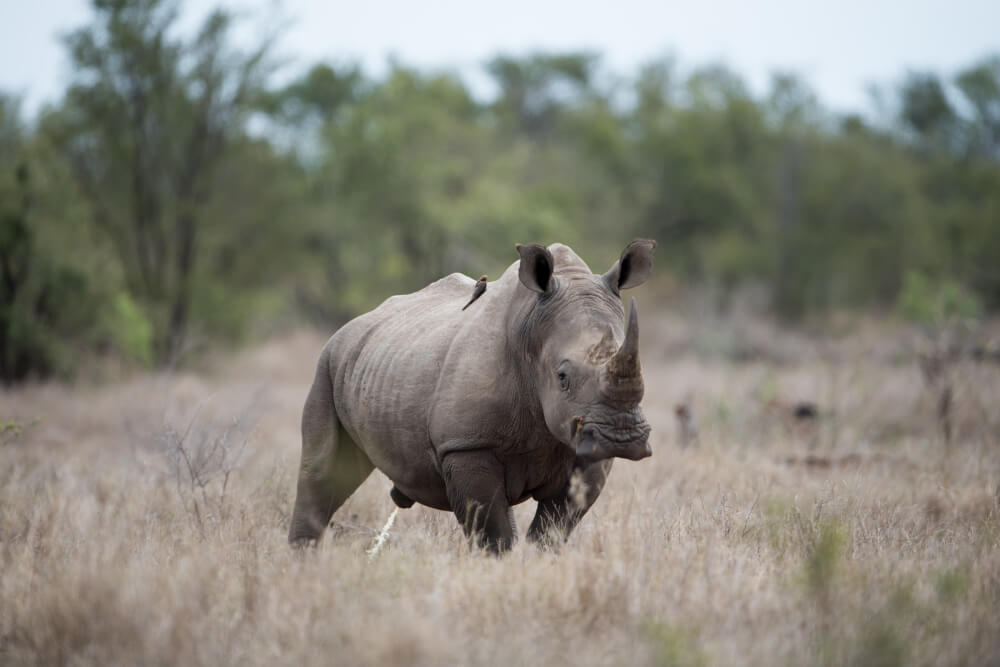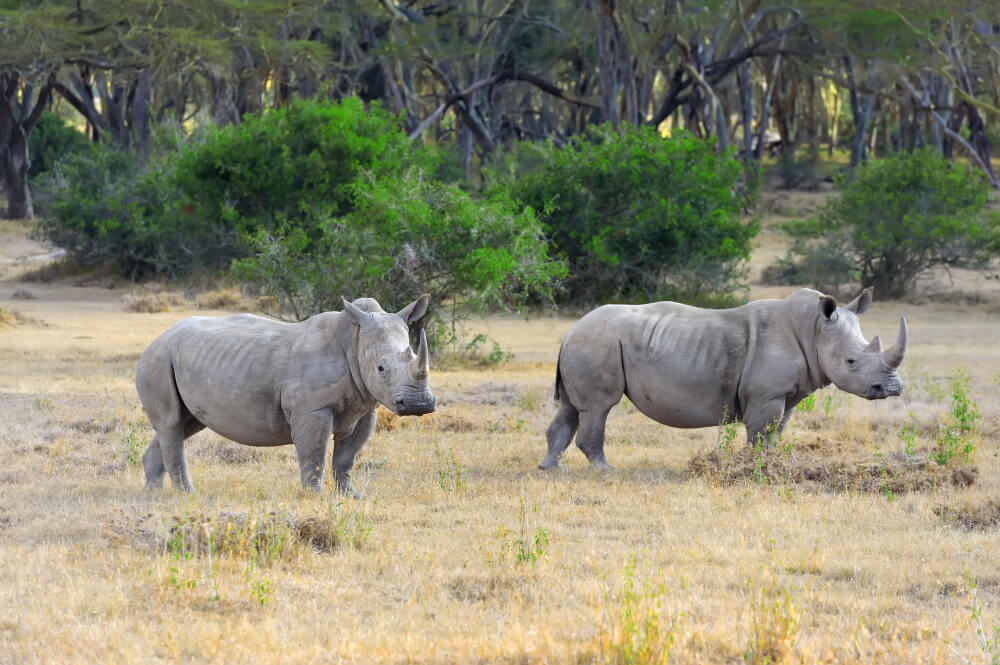Powerful and Rare Animal
The rhino, one of Africa’s biggest mammals, was almost on the brink of extinction a few years back. Since the 70’s, rhino numbers have dwindled some 90%. Of the rhino species remaining today, all are on the endangered list. Africa is home to two of the five rhino species: the white and black rhino.
There are noticeable differences between the white and black rhinos. The white rhino is also known as the square-lipped rhino. The white rhino has a wide muzzle that is ideally suited to grazing. The white rhino also has a large hump on its neck and a longer face than the black rhino.
Africa’s black rhino is otherwise known as the hook lipped rhino. The muzzle of the black rhino isn’t as wide as the white rhino and it has more of a noticeable point. Also, the hump that is clearly visible on the white rhino isn’t present on the black rhino.
The black rhino is usually a solitary animal whilst the white rhino spends a fair amount of time with others of its kind. Rhino’s eyesight isn’t that great but its more than made up for by its acute hearing and sense of smell. They are known to be quite ill-tempered at the best of times so caution should at all times be exhibited. With a top speed of around 50km/hr, you wouldn’t want to aggravate this horned animal.
A number of conservation efforts, such as the International Rhino Foundation, are in place around the world to prevent the rhino population from dying out.











